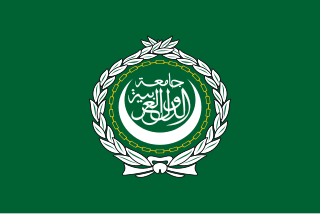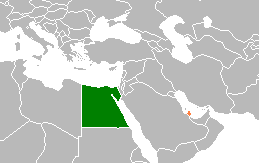
Ensuring national security, increasing influence among its Arab neighbours and securing the return of the Golan Heights, have been the primary goals of the Syrian Arab Republic's foreign policy. At many points in its history, Syria has seen tension with its neighbours, such as Turkey, Israel, Jordan, Iraq, and Lebanon. Syria enjoyed an improvement in relations with several of the states in its region in the 21st century, prior to the Arab Spring and the Syrian civil war. Until 2018, due to the Syrian civil war, the Syrian Arab Republic's government was partially isolated from the countries in the region and the wider international community. Diplomatic relations are severed with several countries, including Turkey, Canada, France, Australia, New Zealand, Sweden, Denmark, the Netherlands, Germany, the United States, the UK, Belgium, Spain, Mexico, Qatar, Georgia, and Ukraine. In 2011 and 2012, Syria was suspended from the Organisation of Islamic Cooperation and Union for the Mediterranean. Syria is also a full member of the Arab League. Syria is a candidate state of the new Eurasian Economic Union (EAEU).

The Arab League, formally the League of Arab States, is a regional organization in the Arab world. The Arab League was formed in Cairo on 22 March 1945, initially with seven members: Egypt, Iraq, Transjordan, Lebanon, Saudi Arabia, Syria, and North Yemen. Currently, the League has 22 members.

Walid Mohi Edine al Muallem was a Syrian diplomat and Ba'ath Party member who served as foreign minister from 2006 to 2020 and as deputy prime minister from 2012 to 2020.

The dynamic between the League of Arab States and the Islamic Republic of Iran has been ambivalent, owing to the latter's varying bilateral conduct with each country of the former. Iran is located on the easternmost frontier of the Arab League, which consists of 22 Arab countries and spans the bulk of the Middle East and North Africa, of which Iran is also a part. The Arab League's population is dominated by ethnic Arabs, whereas Iran's population is dominated by ethnic Persians; and while both sides have Islam as a common religion, their sects differ, with Sunnis constituting the majority in the Arab League and Shias constituting the majority in Iran. Since Iran's Islamic Revolution in 1979, the country's Shia theocracy has attempted to assert itself as the legitimate religious and political leadership of all Muslims, contesting a status that has generally been understood as belonging to Sunni-majority Saudi Arabia, where the cities of Mecca and Medina are located. This animosity, manifested in the Iran–Saudi Arabia proxy conflict, has greatly exacerbated the Shia–Sunni divide throughout the Muslim world.

The Arab Parliament is the legislative body of the Arab League. At the 19th Arab League Summit in Amman, the Arab states agreed to create an Arab Parliament, and came up with a resolution to give Amr Moussa the Secretary-General of the Arab League the power to start and create the Parliament.
The Arab League is a political organization aiming to help integrate its members economically, and solve in-between conflicts without asking for foreign aid. It possesses elements of a state representative parliament, while issues of foreign affairs are usually dealt under the United Nations supervision.
The Arab League has 22 member states. It was founded in Cairo in March 1945 with seven members: the Kingdom of Egypt, Kingdom of Iraq, Lebanon, Saudi Arabia, Syrian Republic, Transjordan, and North Yemen. Membership increased during the second half of the 20th century. Seven countries have observer status. The headquarters are located in Cairo, Egypt.
International reactions to the Syrian civil war ranged from support for the government to calls for the government to dissolve. The Arab League, United Nations and Western governments in 2011 quickly condemned the Syrian government's response to the protests which later evolved into the Syrian civil war as overly heavy-handed and violent. Many Middle Eastern governments initially expressed support for the government and its "security measures", but as the death toll mounted, especially in Hama, they switched to a more balanced approach, criticizing violence from both government and protesters. Russia and China vetoed two attempts at United Nations Security Council sanctions against the Syrian government.
Lieutenant General Mohammed Ahmed Mustafa al-Dabi is a Sudanese military commander and intelligence officer who served as head of the Arab League observer mission in Syria from December 2011 to February 2012.
The following is a timeline of the Syrian Civil War from January to April 2012, during which time the spate of protests that began in January 2011 lasted into another calendar year. An Arab League monitoring mission ended in failure as Syrian troops and anti-government militants continued to do battle across the country and the Syrian government prevented foreign observers from touring active battlefields, including besieged opposition strongholds. A United Nations-backed ceasefire brokered by special envoy Kofi Annan met a similar fate, with unarmed UN peacekeepers' movements tightly controlled by the government and fighting.

Historically, relations between the Arab Republic of Egypt and the Kingdom of Saudi Arabia could be considered as extending several centuries back to the relations between earlier regimes in Egypt – the highly autonomous Egypt Eyalet in the Ottoman Empire and the Kingdom of Egypt – and the earlier manifestations of Saudi/Wahhabi power in the Arabian Peninsula. Saudi Arabia and Egypt are both highly influential countries in the Arab world. Egypt is the most populous Arab country, and Saudi Arabia is a member of the G20. According to a 2013 Pew global opinion poll, 78% of Egyptians express a favourable view of Saudi Arabia, and 19% express an unfavourable view.
The Syrian peace process is the ensemble of initiatives and plans to resolve the Syrian civil war, which began in 2011 and spilled beyond its borders. The peace process was moderated by the Arab League, the UN Special Envoy on Syria, Russia and Western powers. The negotiating parties were representatives of the Syrian Ba'athist government and Syrian opposition. The Autonomous Administration of North and East Syria was excluded at the insistence of Turkey. Radical Salafist forces including the Islamic State of Iraq and the Levant have not engaged in any contacts on peaceful resolution to the conflict.
The Fourth Extraordinary Session of the Islamic Summit was a conference organised by the Organisation of Islamic Cooperation (OIC) in Mecca on 14 and 15 August 2012. The venue of the conference was Al Safa Palace.

Saudi Arabia–Syria relations refer to bilateral and economic relations between Saudi Arabia and Syria. Diplomatic ties between these two countries of the Middle East have long been strained by the major events in the region. Saudi Arabia has an embassy in Damascus, and Syria has an embassy in Riyadh. Both countries are members of the Arab League and share close cultural ties.
In September 2011 – January 2012, the Arab League tried to mediate in the Syrian civil war, without much success.

Egypt–Qatar relations are the bilateral relations between the State of Qatar and the Arab Republic of Egypt. They first began in 1972.

Iran and Saudi Arabia are engaged in a proxy conflict over influence in the Middle East and other regions of the Muslim world. The two countries have provided varying degrees of support to opposing sides in nearby conflicts, including the civil wars in Syria and Yemen; and disputes in Bahrain, Lebanon, Qatar, and Iraq. The struggle also extends to disputes or broader competition in other countries globally including in West, North and East Africa, South, Central, Southeast Asia, the Balkans, and the Caucasus.
The Qatar diplomatic crisis was a high-profile incident involving the deterioration of ties between Qatar and the Arab League between 2017 and 2021. It began when Saudi Arabia, the United Arab Emirates, Bahrain, and Egypt simultaneously severed their bilateral relations with Qatar and subsequently banned Qatar-registered aircraft and Qatari ships from utilizing their sovereign territory by air, land, and sea; this involved the Saudis' closure of Qatar's only land crossing, initiating a de facto blockade of the country. Tensions between the two sides came to a close in January 2021, following a resolution between the Saudis and the Qataris.

The Qatar–Saudi Arabia diplomatic conflict refers to the ongoing struggle for regional influence between Qatar and the Kingdom of Saudi Arabia (KSA), both of which are members of the Gulf Cooperation Council (GCC). It is sometimes called the New Arab Cold War. Bilateral relations have been especially strained since the beginning of the Arab Spring, that left a power vacuum both states sought to fill, with Qatar being supportive of the revolutionary wave and Saudi Arabia opposing it. Both states are allies of the United States, and have avoided direct conflict with one another.










